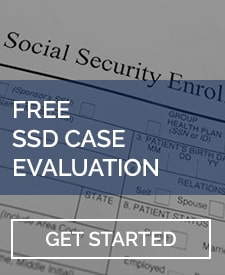When you are struggling with a disability, you hear any number of cliches: Everything will work out. You’ll feel better soon. It’ll be fine.
Empty platitudes mean nothing. You need answers, and you need to understand what steps to take to receive the assistance to which you are entitled. The assistance you need to make ends meet, to take care of your family, to meet mounting medical and financial obligations.
Denied?
The truth is that applying for and receiving Social Security Disability benefits can be a lengthy, challenging, process. Many applicants do not realize that the Social Security Administration (SSA) rejects the majority of claims, at least initially.
Unless you provide clear evidence that you suffer from one of the conditions on the SSA’s “Listing of Impairments” (i.e. disabilities that automatically qualify you to receive benefits), it can be difficult to make it through the first round, so to speak.
Does this mean that you cannot receive benefits? Not necessarily. In many cases, it means that you need to develop and present a compelling case that demonstrates that you cannot work due to your disability and that you are entitled to these funds.
Upon rejection of your claim, you can file a reconsideration appeal. And, if that fails, you can file a request for a Social Security Disability hearing in front of an Administrative Law Judge.
A Successful Outcome
Let’s back up. A successful claim, reconsideration, or hearing depends upon three keys:
- Timely application for benefits
- Clear and convincing medical/psychological evidence
- Persistence
Many people who have applied for Social Security Disability benefits will tell you that the last – persistence – is arguably the most important. This is especially true if your initial application and reconsideration are denied.
The tips we offer are integral to the initial application, as well as to your reconsideration and hearing:
Do Not Wait to Apply
It can take up to a year to process SSDI applications; if your first try is denied, you can plan on another year or so to appeal that decision. This means time is of the essence, especially since you are unable to work. Don’t delay; you do not want to see your savings or other assets drain up while you wait on the SSA.
Remember, too, that disability benefits are contingent on your disability – not your financial status. It doesn’t matter if you have money in the bank, a line of credit, gifts from family, or benefits from other agencies/programs. You don’t have to “spend down.” Start the application process immediately, planning on what seems like an unreasonable wait.
*Note: The SSA will grant “Compassionate Allowance” for people who have documented that they have the most severe of disabilities (e.g. ALS, acute leukemia, early-onset Alzheimer’s, heart transplant waitlist, etc. For a full listing, see the SSA’s list of Compassionate Allowance Conditions). Often, this means that the condition is terminal. The processing time is expedited, and these individuals will receive benefits more quickly than other applicants.
Keep Meticulous Records
Consider this your new full-time job. Keep an ongoing file that includes:
- Every medical appointment (doctor, specialist, physical therapy, counseling, etc.). Every single appointment.
- All receipts for any service/product/medications related to your condition.
- A full list of every procedure and treatment you have undergone, as well as every medication your doctor(s), have prescribed.
- An account of how successful – or not – treatments have been.
- All of your symptoms (physical and psychological) related to your condition. Be thorough. For example, if you are dealing with cancer, also note any depression, anxiety, and mental stress you experience. This is relevant information for the SSA to consider.
- Copies of all medical records. Enlist the help of your doctor(s) and make sure you have this information on file with them and in your file.
- A letter from your doctor explaining your condition and how it impacts your ability to work and perform activities of daily living.
Gather this information in a folder or binder, and keep a log or journal of your symptoms and other key evidence. This will undoubtedly assist you in making your initial claim, and it is critical when pursuing the appeals process. At your hearing, you want to present a clear and compelling case that you are entitled to receive Social Security Disability benefits.
Hire a Florida SSD Benefits Lawyer

If you are entering into the reconsideration or hearing stage, an attorney is not required. You can represent yourself. That said, a lawyer who has specific experience with Social Security Disability proves an invaluable strategic asset:
- They know the law. They understand what is needed for a compelling case, and they will help you gather the required documentation.
- They can interact with your medical providers on your behalf. Some doctors don’t want to take on the hassle of writing letters. You need this information for your claim; an experienced attorney will see that your doctor provides it.
- They can prep you. Your hearing is a nerve-wracking affair. With a representative on your side, you can go into this process fully prepared, with confidence – and with the best chance of success.
- They ensure you meet timelines and other legal requirements. For example, you generally have 60 days after receiving your benefits decision to file for an appeal. If you are late, your request for appeal will likely be rejected.
- They can arrange for witnesses to attend the hearing. You may bring witnesses, and the Administrative Law Judge (ALJ) may ask that other witnesses (e.g., doctors) answer questions during your hearing. Your legal representative can take on this task and rigorously question these individuals.
- They may be able to eliminate the need for a hearing altogether. You must submit new or updated evidence pertaining to your condition to the ALJ before your hearing – the earlier the better. Your lawyer can do this, and if it is compelling enough, the judge may rule in your favor without need for a hearing.
- They’re more likely to get you a win. Data indicates that those who retain legal counsel for their disability hearing are more likely to receive a favorable outcome.
We know what you’re thinking: A lawyer costs money, and I’m already struggling financially.
Under federal law, SSDI attorneys receive 25 percent of your back pay or $6000, whichever amount is lower. Back pay is the monies that accrue while you are waiting on approval from the SSA. The SSA typically withholds 25 percent of your back payments and pays your attorney directly.
Bottom line: the fees do not come out of your pocket, and they are capped at $6000. Often, though, the amount is much less. Further, if your case is unsuccessful, your attorney may not charge you.
Line Up Your Witnesses
Witnesses can attest to the limitations which your disability has created. For example, your roommate or spouse can provide evidence of how your condition has impacted your ability to execute routine tasks because of compromised motor control. Your former employer or a coworker can describe how you were unable to perform at work because of severe pain.
Whatever your disability and its side effects, ask the people who have seen its impact on you to act as witnesses at your Social Security Disability hearing.
There are some witnesses that are generally less helpful. For example, the ALJ may ask a vocational expert (VE) to provide an opinion about your ability to work. The VE may say that someone with your disability can do light work and list jobs that you could do. Whether or not this is actually the case is another matter.
This is where your Florida SSD benefits lawyer plays an integral role. They can help you dispute the VE’s opinion and prove to the ALJ that you cannot complete even light work.
Make Your Social Security Disability Hearing a Top Priority
While your disability may make it difficult to travel or execute tasks related to your hearing, you need to make every and all effort to attend. If you cannot, you must inform the ALJ as soon as possible and explain. If they find that your explanation is not acceptable, they may dismiss your request for a hearing. Then it’s essentially “game over” in terms of your benefits.
If they find that your reason for not attending is good enough, they may make a determination based on your file or they may reschedule. But remember, showing up to a hearing as scheduled is vital.
If money is an issue, and the hearing is scheduled for over 75 miles from your home, the SSA may compensate you for bus fare or car-related expenses. If you need lodging, meals, or other accommodations, you must submit this for the ALJ’s approval prior to the hearing. Again, this is an area in which your lawyer can assist you.
Know Your Case
You live with your disability/condition every second of every day. But make sure to review the records you have provided the SSA (and check that everything is included) and be able to explain how your condition limits/negates your ability to work.
Do not minimize your disability during your hearing. Provide specifics in terms of its impact on your life and ability to work. You do not want to exaggerate – but nor should you downplay the very real, very difficult, roadblocks that your condition has thrown in your way.
Persist
The Social Security Disability hearing and appeals process can be lengthy, challenging, frustrating, and frightening. Don’t feel like you must do it on your own. The LaBovick Law Group has decades of experience representing those seeking the benefits to which they are entitled. When you need aggressive, tireless advocates, we are here to fight for you, build a compelling case, and ensure that you receive the disability payments you need.





